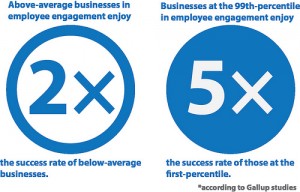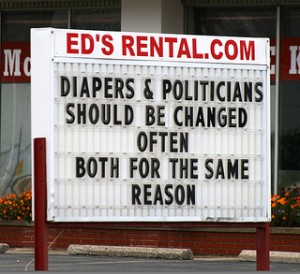The Dangers of Single Source Research
By Spencer Yarnell Head of Spreading the Herd Word

So here at the IBEX blog we like to talk a lot about a noteworthy ideal titled Employee Engagement (Hear the twinkle of angels as you say it) and how it increases productivity and improves your business. However we are always using the same source to justify our claims: the mysterious syndicate called Gallup.
What the heck is Gallup?
Well according to the Gallup Wikipedia article: “Gallup, Inc., is primarily a research-based performance-management consulting company”. (For those of you who claim Wikipedia is not a reputable source: Go become a professor at some university) What Gallup is probably best known for is their frequent and numerous public opinion polls known as the Gallup Polls. Their website contain daily statistics based on poll numbers. They are particularly famous for their tracking of US elections.
So how does Employee Engagement fit into this? Well turns out Gallup has also done a fair bit of research and polling into that too. Their research clearly shows a connection between financial success for your business and Employee Engagement. Thus our frequent quoting of their polls and their methods.
But wait, one of Gallup’s sources of business and income is offering consulting based on their polls… So here’s where the cynic in me bares his big ugly head: if the results were that employee engagement do not improve business what would Gallup consult on? What I’m saying is: It’s in Gallup’s advantage to have results showing Employee Engagement improves business.

Picture by Stefan Leijon on Flickr. Click picture to link back.
Does this mean their research is wrong? Of course not, but we should question it critically. How many polls were conducted that didn’t find positive results until Gallup got one that did? This brings me to the main point of this bit. One source isn’t enough anymore. Even the best sources have agendas. In today’s world of marketing, ANYTHING someone outside of the company reads is a source of marketing/advertising. So everything we read on some level is a pitch. It’s an unfortunate circumstance but think about it: politicians and the government in power are always skewing or dismissing the facts that play poorly for them. News outlets take defined political stances and sell their news as a pitch in support of their political stance. Companies quote the endless statistics that make them the best. (Last I checked there can’t be three different ‘best’ car companies as voted by the public, but what do I know, I’m a math major.) EVERY source has a reason for presenting their information the way they do beyond a knightly devotion to the ‘truth’.
I still think Employee Engagement is a worthy and useful pursuit, I believe it is useful and I believe Gallup’s polls are correct on the subject but I also think we need to back up what we say more concretely on this blog. This is not to say that our writings before are untrue or not substantiated but we’re getting better so we should make sure our arguments are based on solid ground. We want to provide you guys all with accurate, interesting, and relevant information on payroll and the workings of a small company. This goes just beyond the blog as well, is the information we use to make business decisions biased? In today’s world we need to be critical of our sources of information.
Goatbuzzter out.
As always I want you to comment but I’m especially interested in what you guys think about this.